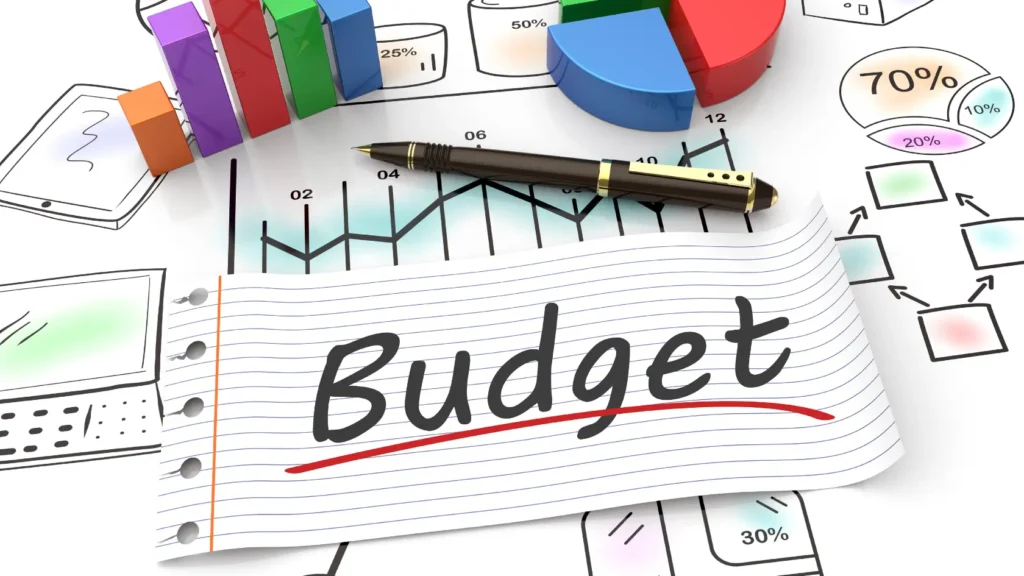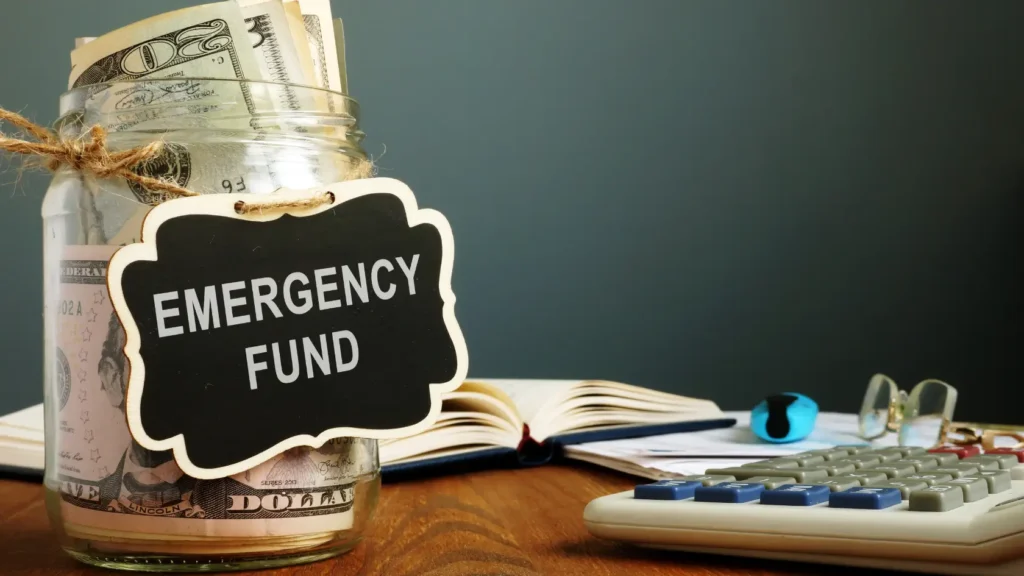Achieving financial freedom is a goal that many aspire to, but only a few manage to accomplish. The journey to financial independence doesn’t happen overnight; it requires discipline, patience, and a commitment to making smarter financial decisions. The key lies in adopting financial freedom habits that build wealth over time and help you break free from the cycle of debt and financial stress.
No matter where you are on your financial journey, adopting the right financial freedom habits and steps can significantly accelerate your progress. Habits for financial freedom are actionable daily and routine practices that can help you, just as they’ve helped countless others, achieve lasting financial independence. By focusing on smart strategies—like building a solid budget, automating savings, and making informed investment choices—you can take control of your finances and set yourself on the path to financial freedom. These habits are practical, easy to implement, and can transform your financial situation over time.
This comprehensive guide breaks down the 15 powerful financial freedom habits that will help you achieve financial freedom faster. By adopting these proven habits, you’ll be well on your way to living the life you want, free from financial constraints.
Table of Contents
Financial Freedom Habits
1. Set Clear Financial Goals

Understanding what financial freedom means to you is crucial for achieving it. Set clear, specific, and measurable financial goals to guide your path. Ask yourself: What does financial freedom look like for you? Is it a comfortable retirement, a debt-free lifestyle, or the ability to travel without financial constraints? Defining your goals will give you a roadmap to follow and help you stay motivated. Break down your long-term objectives into smaller, manageable milestones.
For instance, if you aim to retire early, determine the amount of savings needed and the timeline for achieving it. Write down these goals and regularly review and adjust them as needed. By setting clear financial goals, you create a vision that drives your daily habits and decisions, making it easier to track progress and stay committed.
2. Create and Stick to a Budget

A well-crafted budget is a powerful tool for taking control of your finances. Start by tracking your income and expenses to understand where your money goes. Categorize your spending into essentials (like housing and utilities) and discretionary items (such as dining out and entertainment). Create a budget that allocates funds for each category and ensures that you live within your means.
Sticking to this budget requires discipline but pays off by preventing overspending and helping you save more. Use budgeting apps or spreadsheets to track your expenses and adjust your budget. Regularly review your budget to accommodate any changes in income or spending habits. By following a budget, you build financial stability and work towards your goals with confidence.
3. Automate Your Savings

Automating your savings can be a game-changer for achieving financial freedom. Set up automatic transfers from your checking account to your savings or investment accounts each payday. This method removes the temptation to spend the money you intend to save and ensures that you consistently contribute to your financial goals. Automating savings also helps you build an emergency fund and make regular investments without having to think about it. Most banks and investment platforms offer easy ways to set up automatic transfers. By making savings a routine part of your financial management, you can steadily grow your wealth and stay on track to reach your financial objectives.
4. Live Below Your Means
Living below your means is a fundamental habit for achieving financial freedom. It involves spending less than you earn and prioritizing needs over wants. Adopting a frugal lifestyle doesn’t mean sacrificing enjoyment but rather making conscious choices about where your money goes. Evaluate your spending habits and look for areas where you can cut back. For example, consider cooking at home instead of dining out or finding cost-effective alternatives for entertainment. Living below your means allows you to allocate more money towards savings and investments, avoid debt, and build a solid financial foundation. This habit helps you achieve financial freedom faster and cultivates a more mindful and purposeful approach to money.
5. Build an Emergency Fund

An emergency fund is a critical component of financial security. It provides a financial cushion for unexpected expenses like medical bills, car repairs, or job loss. Aim to save three to six months’ worth of living expenses in an easily accessible account, such as a savings or money market account. Building this fund requires consistent contributions and discipline. Start by setting aside a small amount from each paycheck and gradually increase it as your financial situation improves. Having an emergency fund reduces the need to rely on credit cards or loans in times of crisis, keeping your financial goals on track. Regularly review and replenish your emergency fund to ensure it remains adequate for your needs.
6. Pay off Credit Cards in Full
Credit card debt can be a major obstacle to achieving financial freedom. High interest rates on credit card balances can quickly accumulate, making it difficult to pay off debt. To avoid this, make it a habit to pay off your credit card balances in full each month. This practice not only saves you from paying interest but also improves your credit score. If you have existing credit card debt, focus on paying it down as quickly as possible. Consider strategies like the avalanche or snowball method to tackle debt efficiently. By managing credit card debt responsibly, you enhance your financial health and work towards a debt-free future.
Read also: How to Stay Out of Debt Completely: 12 Best Proven Strategies
7. Start Investing Early

Starting to invest early is one of the most effective ways to build wealth and achieve financial freedom. The earlier you begin investing, the more time your money has to grow through compound interest. Begin with low-cost, diversified investment options such as index funds or exchange-traded funds (ETFs). Even small, regular contributions can lead to significant growth over time. Educate yourself about different investment strategies and consider working with a financial advisor to develop a plan that aligns with your goals. By starting early and investing consistently, you harness the power of compounding and accelerate your journey to financial independence.
Recommended: An Essential Beginner’s Guide to ETFs in Kenya: Definition, 4 Types, How to Invest, Risks, and Benefits.
8. Prioritize Retirement Planning

Planning for retirement is essential for long-term financial freedom. Start by determining how much you need to save for a comfortable retirement and choose retirement accounts that offer tax advantages, such as a 401(k) or IRA. Contribute regularly to these accounts and take advantage of any employer-matching contributions. Consider factors like your desired retirement age, lifestyle, and healthcare needs when planning. Regularly review your retirement plan and adjust your contributions as your financial situation changes. Prioritizing retirement planning ensures that you build a secure financial future and maintain your quality of life once you’ve stopped working.
9. Get a Financial Advisor
Consulting a financial advisor can provide valuable insights and guidance on your journey to financial freedom. A financial advisor helps you create a personalized financial plan, offers investment advice, and assists with tax planning and retirement strategies. Choose an advisor who is a fiduciary, meaning they are required to act in your best interest. If you’re unsure when to seek professional help, consider doing so when your financial situation becomes more complex, such as when managing investments, planning for retirement, or dealing with significant life changes. By working with a financial advisor, you gain expert advice and strategies tailored to your unique needs, helping you achieve your financial goals more effectively.
10. Develop Multiple Income Streams (Side Hustles)

Diversifying your income through multiple streams can accelerate your path to financial freedom. Side hustles or freelance work provide additional income that can be used for savings, investments, or debt repayment. Consider opportunities that align with your skills and interests, such as consulting, online tutoring, or selling handmade products. Having multiple income sources reduces reliance on a single paycheck and can offer financial stability during economic downturns. Regularly assess and optimize your side hustles to maximize earnings. By developing multiple income streams, you enhance your financial flexibility and speed up your journey toward financial independence.
Recommended: How to Make Extra Money Online from Home in Kenya: 12 Best Ways
11. Hold a Monthly Budget Meeting
Regularly reviewing your financial situation is crucial for staying on track with your goals. Holding a monthly budget meeting helps you assess your progress, identify areas for improvement, and make necessary adjustments. During these meetings, review your budget, track expenses, and analyze your savings and investments. Discuss any challenges or changes in your financial situation and adjust your budget accordingly. Involve family members or a partner to ensure everyone is aligned with financial goals and responsibilities. By making budgeting a routine practice, you maintain control over your finances and stay committed to achieving your financial freedom.
12. Avoid Lifestyle Inflation
Lifestyle inflation occurs when increased income leads to higher spending rather than saving or investing. To maintain financial stability, resist the urge to upgrade your lifestyle every time you receive a raise or bonus. Instead, continue living within your means and allocate any additional income toward savings or investments. This practice helps you avoid the trap of overspending and ensures that your financial goals remain a priority. By avoiding lifestyle inflation, you build a stronger financial foundation and make faster progress toward financial freedom. Focus on long-term benefits rather than short-term pleasures to stay on track with your financial objectives.
Read also: 10 Ingenious Ways to Save Money from Your Salary Easily
13. Learn About Investing
Continuous education about investing is essential for making informed financial decisions. Stay updated on investment strategies, market trends, and financial news. Read books, take online courses, or attend workshops to expand your knowledge. Understanding different investment options, such as stocks, bonds, and mutual funds, allows you to make better choices for your portfolio. Additionally, learning about risk management and diversification helps you build a balanced investment strategy. By investing time in education, you empower yourself to make smarter investment decisions and accelerate your journey toward financial freedom.
Recommended: Investing the Warren Buffett Way: A Masterclass in Wealth Building
14. Plan for Big Purchases

Strategic planning for large expenses can prevent financial strain and help you achieve your financial goals. Whether it’s buying a home, a car, or going on a major vacation, start by setting aside money specifically for these purchases. Create a savings plan and set aside a portion of your income each month toward the goal. Research and budget for the total cost, including any additional expenses such as taxes, insurance, and maintenance. By planning ahead, you avoid taking on unnecessary debt and ensure that your big purchases align with your financial objectives. Effective planning also provides peace of mind and helps you stay on track with your overall financial strategy.
15. Invest in Yourself
Investing in yourself is a crucial step toward financial freedom. Focus on self-development and skills training to enhance your career prospects and earning potential. Consider pursuing further education, obtaining certifications, or learning new skills relevant to your field. Investing in personal growth not only boosts your career but also increases your financial resilience. Additionally, maintaining good health and well-being is an investment that impacts your productivity and financial stability. By prioritizing self-improvement and health, you enhance your ability to achieve financial goals and enjoy long-term success.
FAQ Section
What financial freedom habits?
Financial freedom habits involve adopting consistent and actionable practices that lead to a healthier financial state. Essential financial freedom habits include regularly saving and investing, budgeting effectively, managing debt responsibly, and continuously educating oneself about financial strategies. These daily and routine practices collectively help in achieving and maintaining financial freedom.
What is the 4% rule for financial freedom?
The “4% rule” is a common guideline used in retirement planning. It suggests that you can withdraw 4% of your retirement savings annually without running the risk of depleting your funds over a 30-year retirement period. This rule helps in estimating how much you need to save to ensure a stable income throughout retirement.
What are the top 3 financial freedom habits?
The top three financial freedom habits typically include:
- Regular Savings: Consistently setting aside a portion of your income for savings and investments.
- Budgeting: Creating and following a budget to manage expenses and stay on track with financial goals.
- Debt Management: Paying off high-interest debts promptly and avoiding unnecessary debt.
How to achieve financial freedom in 5 years
To achieve financial freedom in five years, focus on aggressive debt reduction, maximizing savings and investments, creating additional income streams, and setting clear, actionable financial goals. A disciplined approach combined with strategic investments and continuous financial education can accelerate your journey toward financial independence.
Financial freedom vs financial independence
Financial freedom refers to having enough income and assets to live the lifestyle you desire without financial stress. Financial independence, on the other hand, is often defined as having sufficient resources to support your lifestyle without relying on employment income
How to be financially independent without a job
Achieving financial independence without a traditional job can be accomplished through passive income sources such as investments, rental properties, or royalties from creative works. Building multiple income streams, maintaining a frugal lifestyle, and smart investing can help you achieve financial independence without relying on a conventional job.
Financial Freedom Habits books
- “Rich Dad Poor Dad” by Robert T. Kiyosaki: offers insights into personal finance and wealth-building.
- “The Total Money Makeover” by Dave Ramsey provides a step-by-step plan to achieve financial stability.
- “Your Money or Your Life” by Vicki Robin and Joe Dominguez: Explores the relationship between money and life satisfaction.
Conclusion
Achieving financial freedom is an ongoing journey that requires both dedication and smart decision-making. The steps outlined throughout this article provide a comprehensive roadmap for anyone committed to transforming their financial future. By embracing a proactive approach and continuously refining your strategies, you set yourself on a path to lasting success.
As you implement these financial freedom habits and strategies, remember that financial freedom is a continuous process of growth and adjustment. The principles of planning, education, and discipline will guide you in overcoming obstacles and seizing opportunities. The discipline to follow through on your goals, the foresight to plan for future needs, and the commitment to personal growth will all contribute to your progress.


